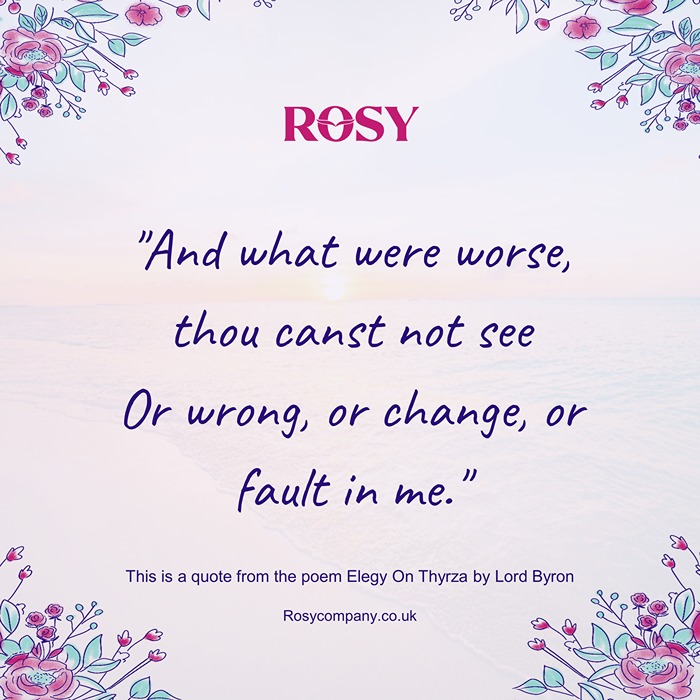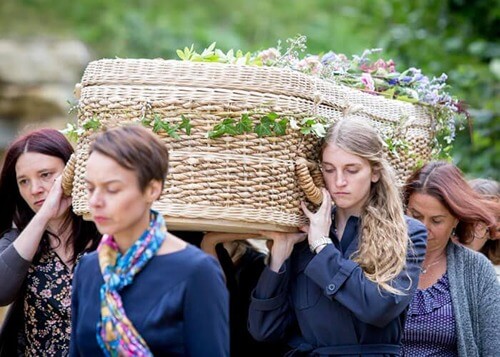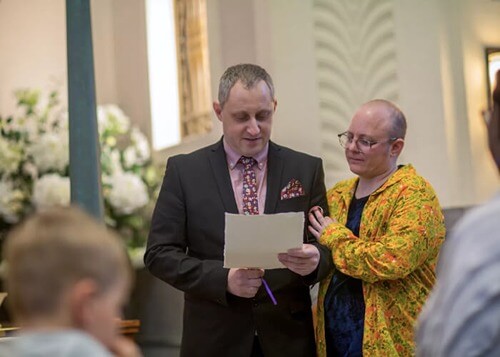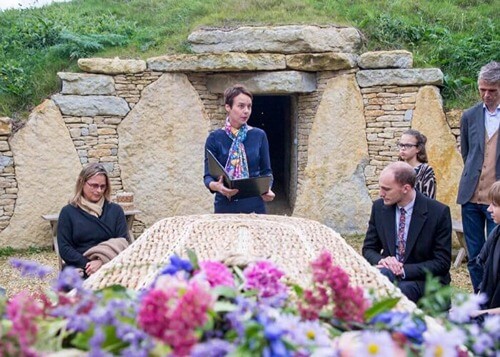> Funeral Poems > Elegy On Thyrza
Elegy On Thyrza
Author: Lord Byron
This Page Includes: Full Verses of the Poem in Text. A Recording of the Poem (Audio). A Free PDF Download for reading purposes. Free Editable Google Doc Download if you wish to make changes or to personalise the poem. The page also includes what the poem is about, structure of poem and explaining the best parts.

Elegy On Thyrza Poem Verses
And thou art dead, as young and fair
As aught of mortal birth;
And forms so soft and charms so rare
Too soon return'd to Earth!
Though Earth received them in her bed,
And o'er the spot the crowd may tread
In carelessness or mirth,
There is an eye which could not brook
A moment on that grave to look.
I will not ask where thou liest low
Nor gaze upon the spot;
There flowers and weeds at will may grow
So I behold them not:
It is enough for me to prove
That what I loved and long must love
Like common earth can rot;
To me there needs no stone to tell
'Tis Nothing that I loved so well.
Yet did I love thee to the last,
As fervently as thou
Who didst not change through all the past
And canst not alter now.
The love where Death has set his seal
Nor age can chill, nor rival steal,
Nor falsehood disavow:
And, what were worse, thou canst not see
Or wrong, or change, or fault in me.
The better days of life were ours;
The worst can be but mine:
The sun that cheers, the storm that lours
Shall never more be thine.
The silence of that dreamless sleep
I envy now too much to weep;
Nor need I to repine
That all those charms have pass'd away
I might have watch'd through long decay.
The flower in ripen'd bloom unmatch'd
Must fall the earliest prey;
Though by no hand untimely snatch'd,
The leaves must drop away.
And yet it were a greater grief
To watch it withering, leaf by leaf,
Than see it pluck'd to-day;
Since earthly eye but ill can bear
To trace the change from foul to fair.
I know not if I could have borne
To see thy beauties fade;
The night that follow'd such a morn
Had worn a deeper shade:
Thy day without a cloud hath past,
And thou wert lovely to the last,
Extinguish'd, not decay'd;
As stars that shoot along the sky
Shine brightest as they fall from high.
As once I wept if I could weep,
My tears might well be shed
To think I was not near, to keep
One vigil o'er thy bed:
To gaze, how fondly! on thy face,
To fold thee in a faint embrace,
Uphold thy drooping head;
And show that love, however vain,
Nor thou nor I can feel again.
Yet how much less it were to gain,
Though thou hast left me free,
The loveliest things that still remain
Than thus remember thee!
The all of thine that cannot die
Through dark and dread Eternity
Returns again to me,
And more thy buried love endears
Than aught except its living years.
As aught of mortal birth;
And forms so soft and charms so rare
Too soon return'd to Earth!
Though Earth received them in her bed,
And o'er the spot the crowd may tread
In carelessness or mirth,
There is an eye which could not brook
A moment on that grave to look.
I will not ask where thou liest low
Nor gaze upon the spot;
There flowers and weeds at will may grow
So I behold them not:
It is enough for me to prove
That what I loved and long must love
Like common earth can rot;
To me there needs no stone to tell
'Tis Nothing that I loved so well.
Yet did I love thee to the last,
As fervently as thou
Who didst not change through all the past
And canst not alter now.
The love where Death has set his seal
Nor age can chill, nor rival steal,
Nor falsehood disavow:
And, what were worse, thou canst not see
Or wrong, or change, or fault in me.
The better days of life were ours;
The worst can be but mine:
The sun that cheers, the storm that lours
Shall never more be thine.
The silence of that dreamless sleep
I envy now too much to weep;
Nor need I to repine
That all those charms have pass'd away
I might have watch'd through long decay.
The flower in ripen'd bloom unmatch'd
Must fall the earliest prey;
Though by no hand untimely snatch'd,
The leaves must drop away.
And yet it were a greater grief
To watch it withering, leaf by leaf,
Than see it pluck'd to-day;
Since earthly eye but ill can bear
To trace the change from foul to fair.
I know not if I could have borne
To see thy beauties fade;
The night that follow'd such a morn
Had worn a deeper shade:
Thy day without a cloud hath past,
And thou wert lovely to the last,
Extinguish'd, not decay'd;
As stars that shoot along the sky
Shine brightest as they fall from high.
As once I wept if I could weep,
My tears might well be shed
To think I was not near, to keep
One vigil o'er thy bed:
To gaze, how fondly! on thy face,
To fold thee in a faint embrace,
Uphold thy drooping head;
And show that love, however vain,
Nor thou nor I can feel again.
Yet how much less it were to gain,
Though thou hast left me free,
The loveliest things that still remain
Than thus remember thee!
The all of thine that cannot die
Through dark and dread Eternity
Returns again to me,
And more thy buried love endears
Than aught except its living years.
Audio Recording
Please note the audio recording may not exactly match the text version as 'Elegy On Thyrza' can be tailored/personalised
Download Poem
Please note the audio recording may not exactly match the text version as 'Elegy On Thyrza' can be tailored/personalised
Personalised Poem
Would you like to customise this poem? You have the option to personalise it by accessing the provided link, which will direct you to Google Docs. From there, you can download the poem ‘Memories’ to your personal Google Docs account or Microsoft Word where you will be able to edit the poem however you want.
About the poem
This poem is about the death of someone the speaker deeply loved. The first stanza expresses the speaker's grief and shock at the sudden loss of the person, who was young and beautiful. Although the person's body has been laid in the earth, the speaker cannot bring themselves to visit the grave.
The second stanza speaks of the enduring nature of the speaker's love for the deceased. Death has sealed their love, and nothing can change or diminish it. The speaker acknowledges that the best years of their life were spent with the deceased, and although the worst years may be yet to come, the deceased will never experience them. The speaker envies the person's dreamless sleep and accepts that their charms have passed away.
The third stanza reflects on the idea that it would be more painful to watch the person's beauty fade over time than to see them die at the height of their loveliness. The speaker suggests that the person was beautiful to the end and compares them to shooting stars that shine brightest as they fall from the sky.
In the final stanza, the speaker expresses regret for not being able to be with the person in their final moments, to hold and comfort them. However, the memories of the person's love that have been left behind are more precious than anything else. The speaker believes that the person's love will endure through eternity, and it brings them comfort to know that their love is buried with the person.
The second stanza speaks of the enduring nature of the speaker's love for the deceased. Death has sealed their love, and nothing can change or diminish it. The speaker acknowledges that the best years of their life were spent with the deceased, and although the worst years may be yet to come, the deceased will never experience them. The speaker envies the person's dreamless sleep and accepts that their charms have passed away.
The third stanza reflects on the idea that it would be more painful to watch the person's beauty fade over time than to see them die at the height of their loveliness. The speaker suggests that the person was beautiful to the end and compares them to shooting stars that shine brightest as they fall from the sky.
In the final stanza, the speaker expresses regret for not being able to be with the person in their final moments, to hold and comfort them. However, the memories of the person's love that have been left behind are more precious than anything else. The speaker believes that the person's love will endure through eternity, and it brings them comfort to know that their love is buried with the person.
The Structure of Poem
The poem is comprised of four stanzas, each with eight lines, and the rhyme scheme of ABABABCC. The poem has a melancholic tone, as the speaker reflects on the death of a loved one. The first stanza acknowledges the young and fair qualities of the deceased, and how they have returned to the earth. The second stanza highlights the speaker's reluctance to visit the grave, preferring instead to remember the deceased as they were in life. The third stanza describes the beauty of the deceased, and how death has preserved that beauty. The final stanza expresses the speaker's desire to be near the deceased, but also acknowledges the comfort of remembering their love, which endures even after death. The structure of the poem, with its consistent rhyme scheme and stanzas, emphasizes the speaker's feelings of loss and longing for the deceased.
Best Quote from Elegy On Thyrza Poem
This is a quote from the poem Elegy On Thyrza by Lord Byron
"And what were worse, thou canst not see
Or wrong, or change, or fault in me."
This quote speaks to the idea that love transcends death and continues on even after the physical form has passed away. The speaker reflects on their love for someone who has died and finds solace in the fact that their love is not subject to the flaws and imperfections of human nature. It is a poignant and bittersweet sentiment that captures the intensity and depth of true love.
Looking for a Funeral Director?
Contact someone today
Related Categories

See related catergories below

Funeral Poems For Girlfriend Or Wife

Nature Funeral Poems

Sorry For Your Loss Poems

Poems For Cremation

Popular Funeral Poems

Modern Funeral Poems
Popular Poems

Discover a collection of our website's most popular poems below:
Main Categories

Are you in search of a particular genre within the realm of poetry? Explore our compilation of the most popular categories below.